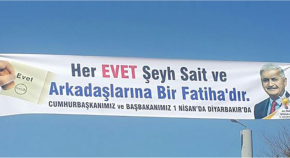Collection
Islam, Critique, and the Canon
- Submission status
- Closed
This special issue is an attempt to unsettle the scholarly gaze on the Islamic by questioning what is perceived and treated as such by bringing the notions of canon and critique into the conversation at theoretical and epistemological levels. The collection of articles in this special issue joins a stream of thought and pushes the boundaries of existing scholarship through a reconsideration of what constitutes ‘the Islamic,’ with a particular focus on non-western lineages of critique and affective rather than rationalist registers of Islamic politics. The main question thus emerges: Where do we locate the critique in Islam and in the studies of Islamic societies? The collection inevitably addresses the ways in which the strongest anti-colonial critique of contemporary Islamist ideologies had been developed as an attempt to establish a new and populist canon to colonial encounter and thus inevitably reiterate the very same dualisms in their discourses. The process of forming a canon is then one of the questions the scholars of Islam and Islamic contexts need to address as an ongoing process, within and beyond the scope of this issue. Yet, for the purpose of this issue, we ask, can populist canonical Islam provide us with a comprehensive understanding of critique? How to we weigh and locate the Islamic-ness critical voices, including the feminist, liberationist, leftist, or anti-capitalist ones? Although these critical formations are discredited by canonical Islam and accused of being western, outsider, and illicit, they provide us with crucial perspectives on the Islamic in contemporary times, without falling into the binaries of neo-colonial and neo-orientalist discourses. The papers in this collection thus allow an insight into some of these debates with a particular focus on Islamic ideas that carried tension in the desire to critique the canon while also claiming legitimacy through a return to some elements of it.
Editors
-
Sertaç Sehlikoglu, s.sehlikoglu@ucl.ac.uk
Dr Sertaç Sehlikoglu is a social anthropologist and an associate professor at UCL’s Institute of Global Prosperity. Her work focuses on intangible aspects of human subjectivity that enable humans to change and transform social life. She is the recipient of a European Research Council (ERC) Starting Grant (2019), the author of “Working Our Desire: Women, Sport and Self-Making in Istanbul” (2021) and the co-editor of several journal issues including “The Everyday Makings of Heteronormativity: Cross-Cultural Explorations of Sex, Gender and Sexuality” (2020). She is also the editor of the Journal of Middle East Women’s Studies’ Reviews Section.
-
Mashuq Kurt
Dr Mashuq Kurt is a Lecturer/Assistant Professor of Sociology in the Department of Law and Criminology at Royal Holloway, University of London. He works on Islam, the Middle East, and Muslim diasporas, focusing on Turkey and Kurds. He is the author of Kurdish Hizbullah in Turkey: Islamism, Violence and the State (Pluto 2017) and numerous articles and book chapters published and forthcoming in Current Anthropology, Journal of Middle East Women’s Studies, Social Research: An International Quarterly, HAU: Journal of Ethnographic Theory, and Journal of Balkan and Near Eastern Studies. mashuq.kurt@rhul.ac.uk
-
Zora Kostadinova
Dr Zora Kostadinova holds a PhD in social anthropology from University College London. Her work focuses on revitalisation of Sufi practices in Southeast Europe.
Articles (7 in this collection)
-
-
Islam, critique, and the canon: an introduction
Authors
- Sertaç Sehlikoglu
- Mashuq Kurt
- Content type: ReviewPaper
- Open Access
- Published: 06 February 2024
- Pages: 1 - 5
-
Edep: ethical imagination and the Sunna of the Prophet Muhammed
Authors
- Zora Kostadinova
- Content type: OriginalPaper
- Open Access
- Published: 16 December 2023
- Pages: 87 - 109
-
The immemorial Iranian nation? SchoolColonialism, nationalism, and modern islamic thought
Authors
- Kamal Soleimani
- Content type: OriginalPaper
- Published: 07 December 2023
- Pages: 69 - 86

-
“Traitor over a night”: on critique and the fragility of privilege in the aftermath of Turkey’s coup attempt
Authors
- Sertaç Sehlikoglu
- Content type: OriginalPaper
- Open Access
- Published: 24 November 2023
- Pages: 45 - 67
-
Beyond the canon: un-learning the “Muslim woman” in UK higher education classroom with a “pedagogy of opacity”
Authors
- Sabiha Allouche
- Content type: OriginalPaper
- Open Access
- Published: 29 September 2023
- Pages: 27 - 43
-
Allah, Bread, Freedom: Turkey’s Muslim others and transnational mosques in Europe
Authors
- Mashuq Kurt
- Content type: OriginalPaper
- Open Access
- Published: 12 September 2023
- Pages: 7 - 26





